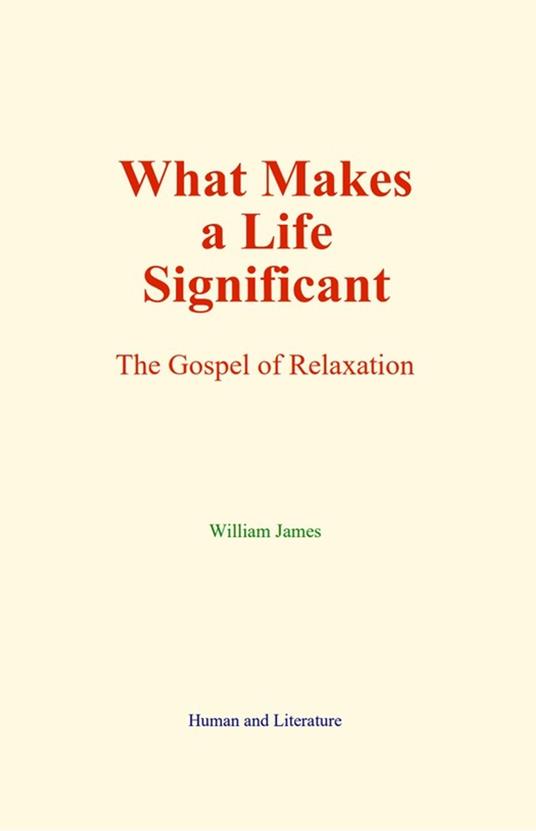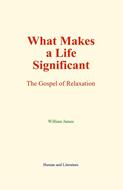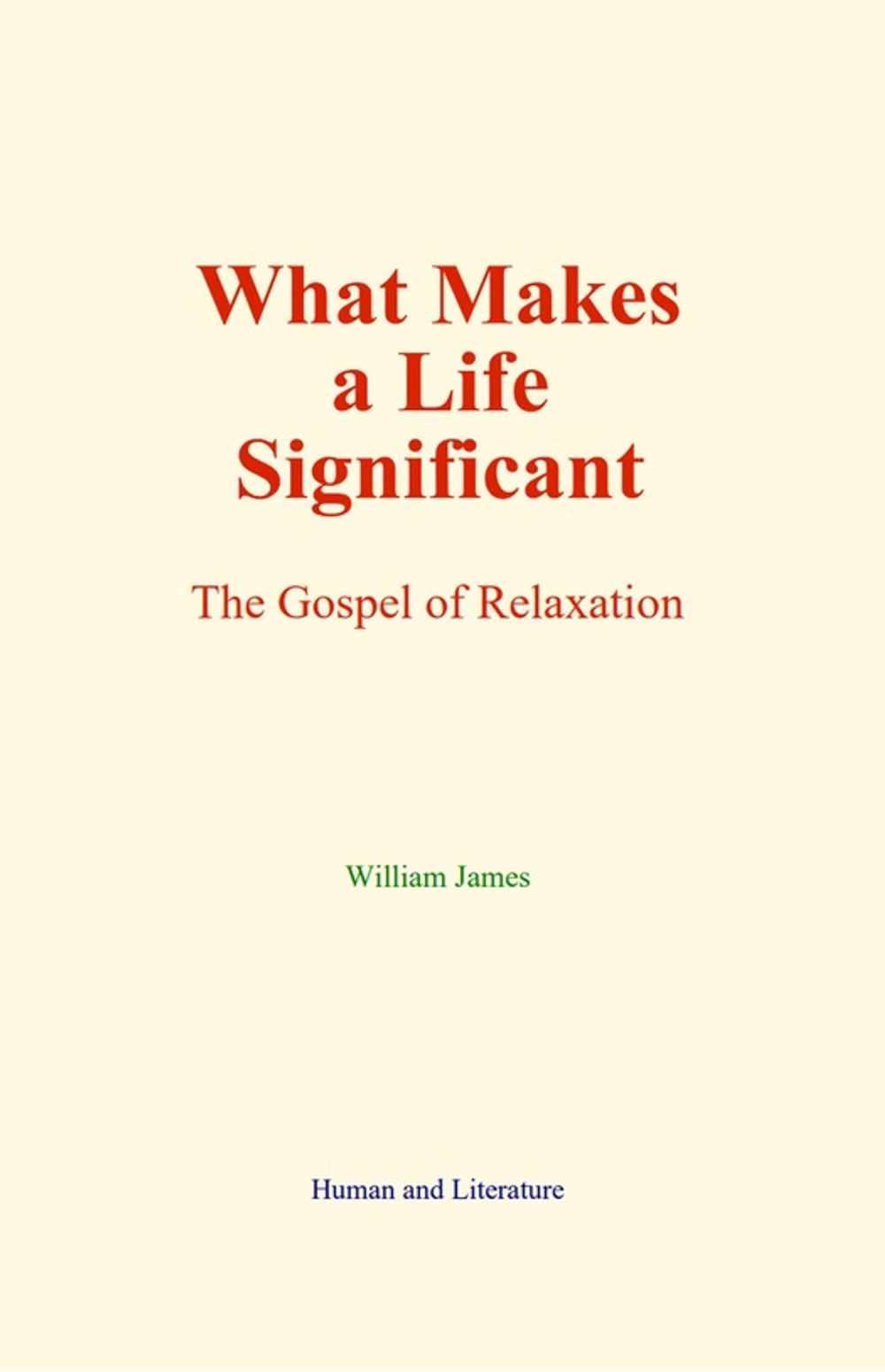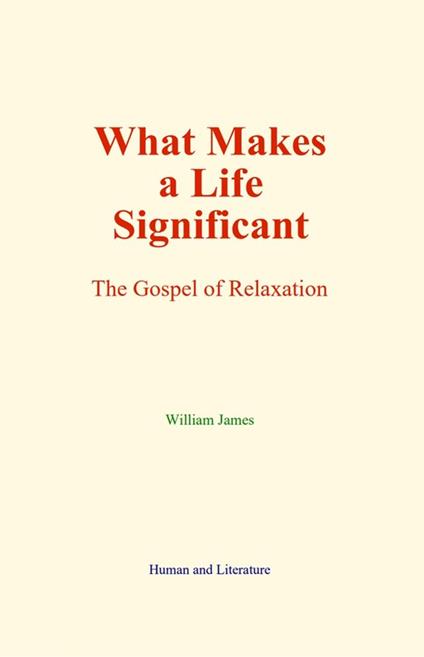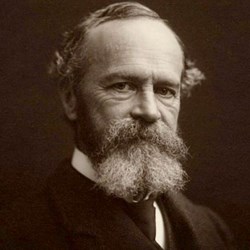What Makes a Life Significant
“We are suffering today in America from what is called the labor-question; and, when you go out into the world, you will each and all of you be caught up in its perplexities. I use the brief term labor-question to cover all sorts of anarchistic discontents and socialistic projects, and the conservative resistances which they provoke. So far as this conflict is unhealthy and regrettable,—and I think it is so only to a limited extent,—the unhealthiness consists solely in the fact that one-half of our fellow-countrymen remain entirely blind to the internal significance of the lives of the other half. They miss the joys and sorrows, they fail to feel the moral virtue, and they do not guess the presence of the intellectual ideals. They are at cross-purposes all along the line, regarding each other as they might regard a set of dangerously gesticulating automata, or, if they seek to get at the inner motivation, making the most horrible mistakes. Often all that the poor man can think of in the rich man is a cowardly greediness for safety, luxury, and effeminacy, and a boundless affectation. What he is, is not a human being, but a pocket-book, a bank-account. And a similar greediness, turned by disappointment into envy, is all that many rich men can see in the state of mind of the dissatisfied poor. And, if the rich man begins to do the sentimental act over the poor man, what senseless blunders does he make, pitying him for just those very duties and those very immunities which, rightly taken, are the condition of his most abiding and characteristic joys! Each, in short, ignores the fact that happiness and unhappiness and significance are a vital mystery; each pins them absolutely on some ridiculous feature of the external situation; and everybody remains outside of everybody else's sight.”
-
Autore:
-
Anno edizione:2024
-
Editore:
-
Formato:
-
Lingua:Inglese
Formato:
Gli eBook venduti da Feltrinelli.it sono in formato ePub e possono essere protetti da Adobe DRM. In caso di download di un file protetto da DRM si otterrà un file in formato .acs, (Adobe Content Server Message), che dovrà essere aperto tramite Adobe Digital Editions e autorizzato tramite un account Adobe, prima di poter essere letto su pc o trasferito su dispositivi compatibili.
Cloud:
Gli eBook venduti da Feltrinelli.it sono sincronizzati automaticamente su tutti i client di lettura Kobo successivamente all’acquisto. Grazie al Cloud Kobo i progressi di lettura, le note, le evidenziazioni vengono salvati e sincronizzati automaticamente su tutti i dispositivi e le APP di lettura Kobo utilizzati per la lettura.
Clicca qui per sapere come scaricare gli ebook utilizzando un pc con sistema operativo Windows
